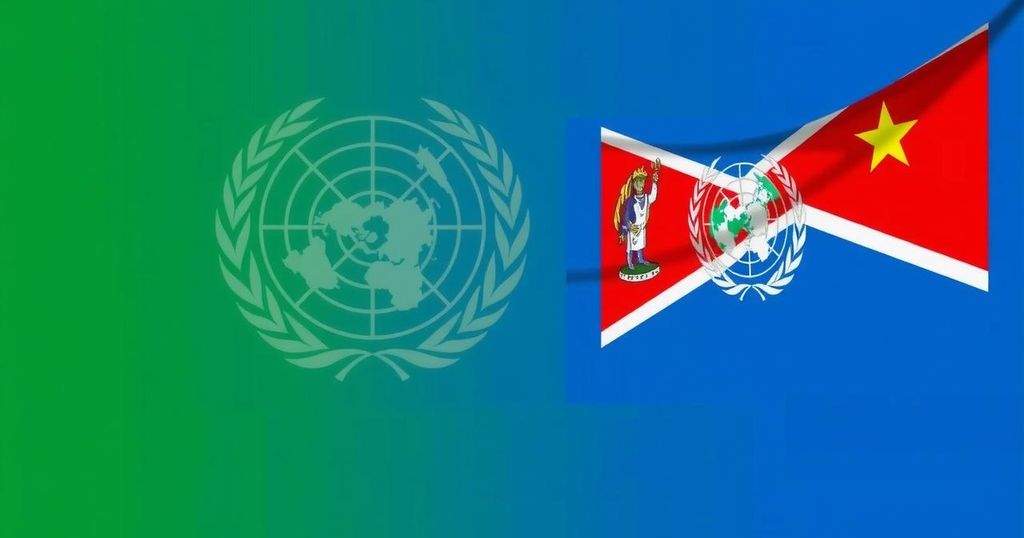Papua New Guinea has declared a boycott of the upcoming UN climate summit, criticizing the process as ineffective and dominated by empty promises from major polluters. Foreign Minister Justin Tkatchenko expressed frustration over the lack of progress made in climate negotiations, emphasizing the need for tangible action rather than rhetoric. The country aims to pursue bilateral climate initiatives instead, particularly with nations like Singapore.
Papua New Guinea has officially announced its intention to boycott the upcoming UN climate summit, scheduled for next month, deeming the negotiations surrounding global climate change a “waste of time” filled with insincere promises from major polluting nations. This bold stance, articulated by Foreign Minister Justin Tkatchenko, is particularly notable given the convention that most governments, despite their criticisms of such summits, typically continue to participate. In an interview with AFP, Tkatchenko expressed frustration at the perceived inefficacy of the COP (Conference of the Parties) summits. He stated, “There is no point going if we are falling asleep because of jet lag because we are not getting anything done.” He lamented the pattern of major polluters pledging significant funds to support climate initiatives, while simultaneously, little tangible progress is made on addressing climate change itself. As one of the most vulnerable nations to climate impacts, given its geographical characteristics and socio-economic challenges, Papua New Guinea is cautious about falling victim to the inadequacy of the ongoing global climate negotiation process. He further emphasized, “We are the third-biggest rainforest nation in the world. We are sucking up the pollutants of these major countries. And they are getting away with it scot-free.” Historically, the COP meetings have been associated with notable breakthroughs, such as the Paris Agreement in 2015, but recent iterations have faced mounting criticism due to the apparent lack of commitment and follow-through by some of the world’s largest emitters. Concerns have also risen regarding the sluggish nature of adaptation funding intended to assist developing nations. Papua New Guinea’s call for a boycott joins a growing chorus of dissatisfaction with the COP process. The decision appears to resonate within the Pacific Islands, where nations such as Tuvalu are contending with imminent threats from rising sea levels. Tkatchenko has voiced support for these smaller nations and indicated a desire to engage in bilateral climate agreements, exemplified by ongoing discussions with Singapore to develop more effective climate initiatives. As the COP29 summit approaches, Papua New Guinea’s withdrawal serves to highlight the increasing disaffection with traditional climate negotiations, signaling a potential shift towards more personalized and focused climate action through direct partnerships.
The decision by Papua New Guinea to boycott the UN climate summit is rooted in a series of frustrations shared by many nations that feel disenfranchised by the existing climate negotiation framework. The COP summits, responsible for pivotal agreements such as the Paris Accord, have increasingly been perceived as ineffective, especially in terms of compelling major polluters to take decisive action. Nations vulnerable to climate change, like Papua New Guinea and its Pacific neighbors, are particularly vocal about their dissatisfaction with the outcomes of these conferences, which often seem more focused on political rhetoric than on substantial commitments to climate action.
Papua New Guinea’s decision to boycott the upcoming UN climate summit underscores a growing disillusionment with the effectiveness of the international climate negotiation process. By articulating the frustration over unfulfilled promises from major polluters and pointing to the inefficacy of the current system, Papua New Guinea aligns itself with broader sentiments among vulnerable nations in seeking more immediate and actionable climate partnerships. Their pivot towards bilateral negotiations may offer a more productive avenue for pursuing meaningful climate-related goals that address the urgent threats they face.
Original Source: www.voanews.com






